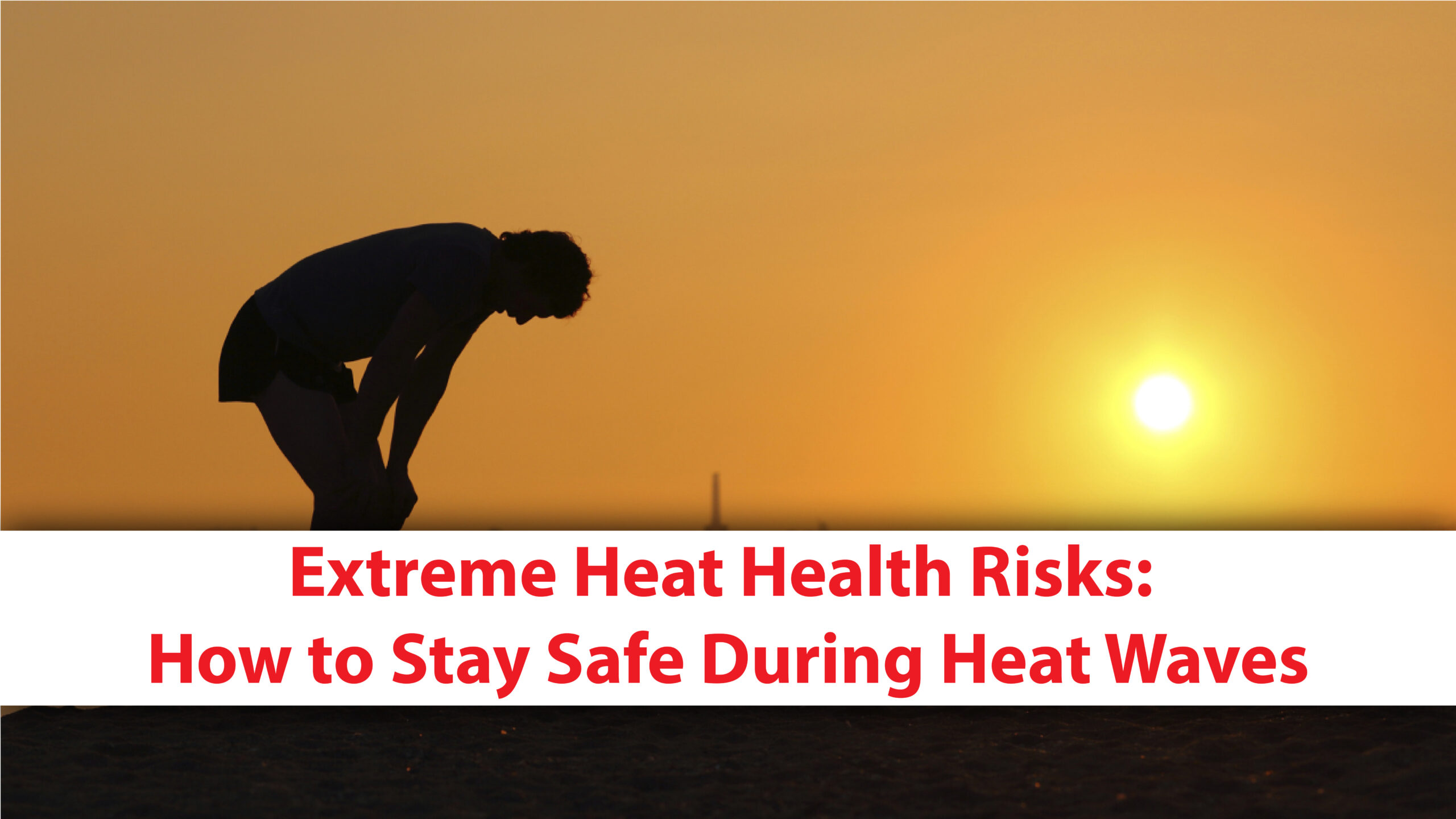As global temperatures continue to rise, extreme heat events are becoming more frequent and intense. While sunny days and warm weather might seem inviting, the reality is that extreme heat poses serious health risks that should not be overlooked. Understanding these risks and taking preventive measures can protect you and your loved ones from the dangerous effects of high temperatures.

The Body’s Response to Heat
The human body is equipped with mechanisms to regulate its internal temperature, primarily through sweating and increasing blood flow to the skin. However, when exposed to extreme heat, these mechanisms can become overwhelmed, leading to a range of health issues.
Heat Exhaustion is one of the most common heat-related illnesses. Symptoms include heavy sweating, weakness, dizziness, nausea, and fainting. If left untreated, heat exhaustion can progress to heat stroke, a life-threatening condition.
Heat Stroke occurs when the body’s temperature regulation fails, causing the core body temperature to rise to dangerous levels (104°F or higher). Symptoms include confusion, loss of consciousness, and even seizures. Heat stroke requires immediate medical attention, as it can quickly lead to organ failure and death.
Vulnerable Populations
Certain groups of people are particularly vulnerable to the effects of extreme heat. These include:
- Older Adults: As we age, our bodies become less efficient at regulating temperature, making older adults more susceptible to heat-related illnesses.
- Children: Young children cannot regulate their body temperature as effectively as adults, making them more prone to heat exhaustion and heat stroke.
- People with Chronic Conditions: Individuals with heart disease, respiratory conditions, or obesity are at higher risk because their bodies may already be under strain.
- Outdoor Workers and Athletes: Those who spend long hours outdoors in the heat are at increased risk, particularly if they are engaged in strenuous physical activity.

The Impact of Extreme Heat on Health
The health effects of extreme heat extend beyond heat exhaustion and heat stroke. Prolonged exposure to high temperatures can exacerbate existing medical conditions, leading to complications such as:
- Cardiovascular Problems: Extreme heat forces the heart to work harder to cool the body, increasing the risk of heart attacks and strokes.
- Respiratory Issues: Hot weather can worsen respiratory conditions like asthma and chronic obstructive pulmonary disease (COPD) due to increased air pollution and higher levels of ground-level ozone.
- Kidney Damage: Dehydration and overheating can lead to acute kidney injury, particularly in those with pre-existing kidney conditions.
- Mental Health Effects: The stress of coping with extreme heat can also take a toll on mental health, leading to increased anxiety, irritability, and even depression.
Staying Safe in Extreme Heat
Given the risks, it’s crucial to take steps to protect yourself and others during periods of extreme heat:
- Stay Hydrated: Drink plenty of water throughout the day, even if you don’t feel thirsty. Avoid alcohol and caffeine, as they can contribute to dehydration.
- Stay Cool: Spend time in air-conditioned environments as much as possible. If you don’t have air conditioning at home, visit public places like cooling centers.
- Dress Appropriately: Wear lightweight, loose-fitting, and light-colored clothing. Use hats, sunglasses, and sunscreen to protect yourself from the sun.
- Limit Outdoor Activities: Avoid strenuous activities during the hottest parts of the day (usually between 10 a.m. and 4 p.m.). If you must be outside, take frequent breaks in the shade and stay hydrated.
- Check on Vulnerable Individuals: Keep an eye on elderly neighbors, young children, and those with chronic illnesses. Ensure they have access to cool environments and are staying hydrated.
- Recognize the Signs: Be aware of the symptoms of heat-related illnesses and act quickly if you or someone else is showing signs of heat exhaustion or heat stroke.
Conclusion
Extreme heat is more than just an uncomfortable inconvenience—it’s a serious public health threat. By understanding the dangers and taking proactive measures, we can reduce the risk of heat-related illnesses and protect our communities from the harmful effects of rising temperatures. Stay informed, stay cool, and prioritize your health as we navigate the challenges of a warming world.
